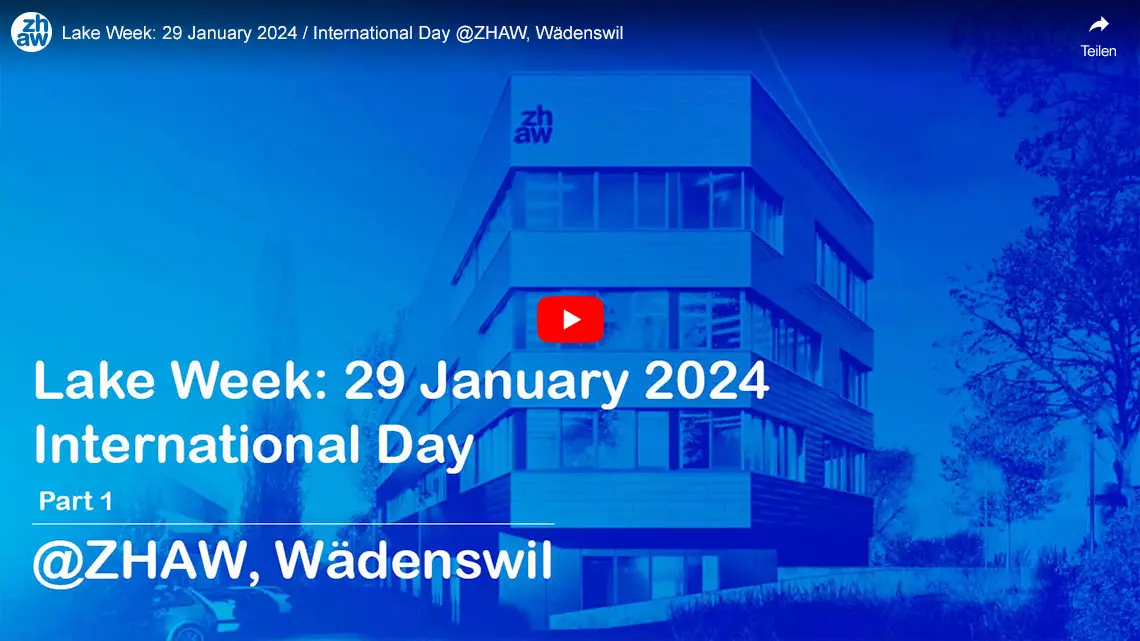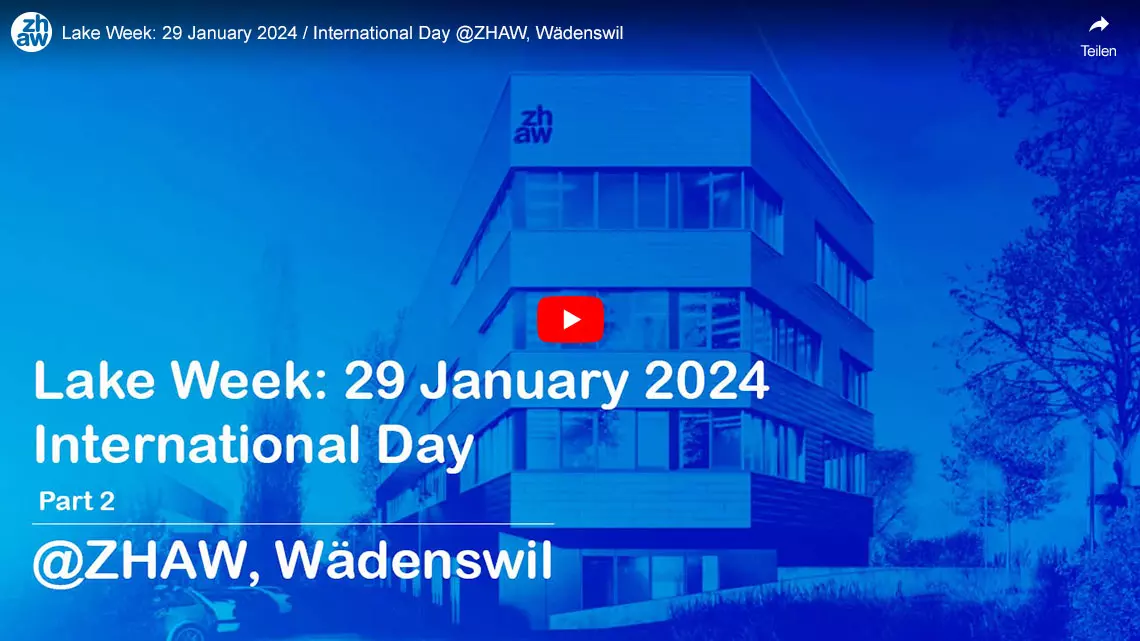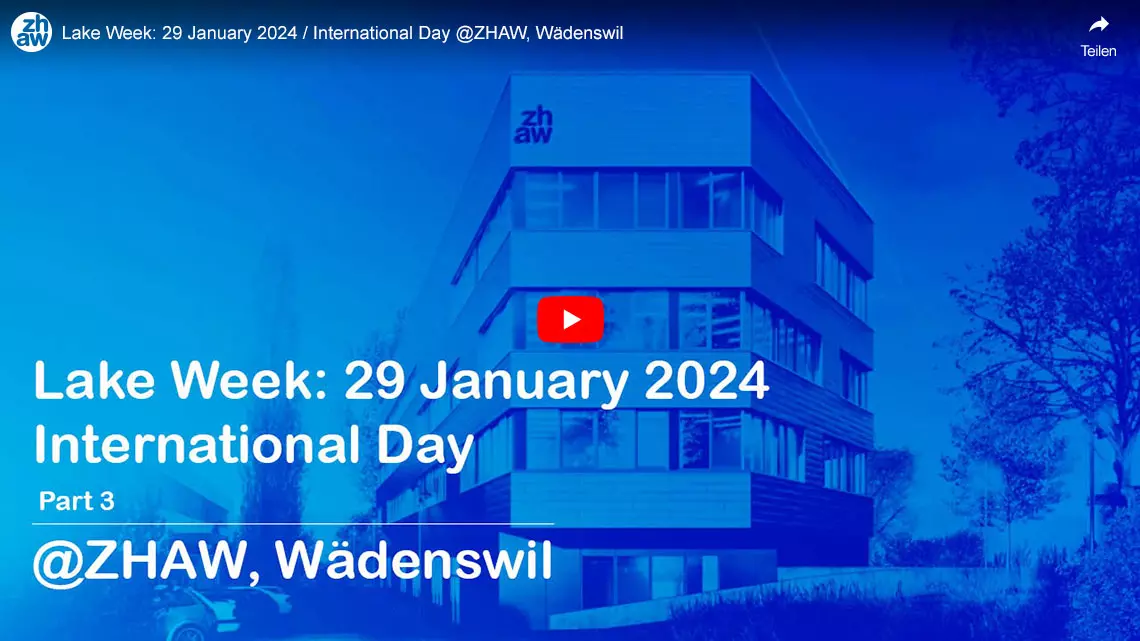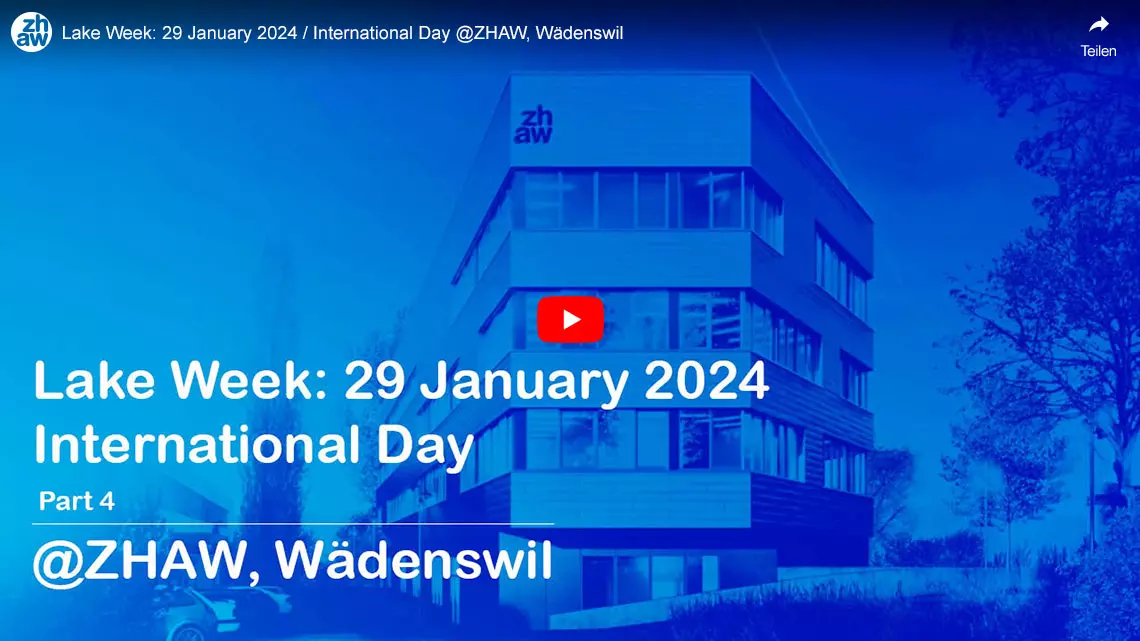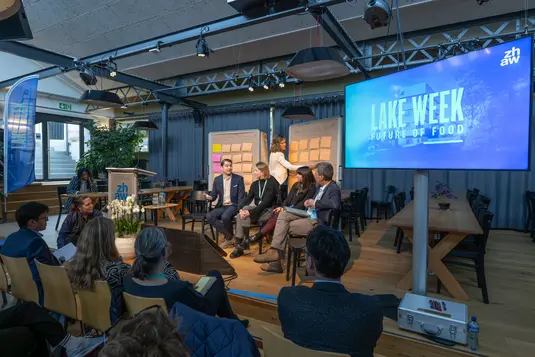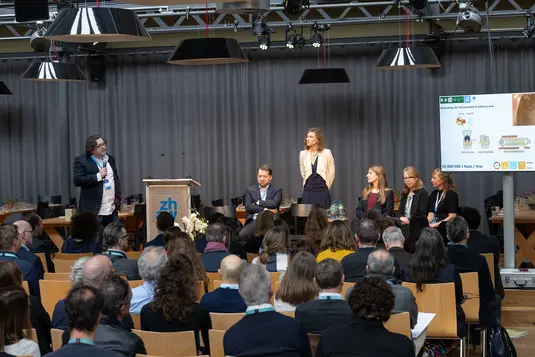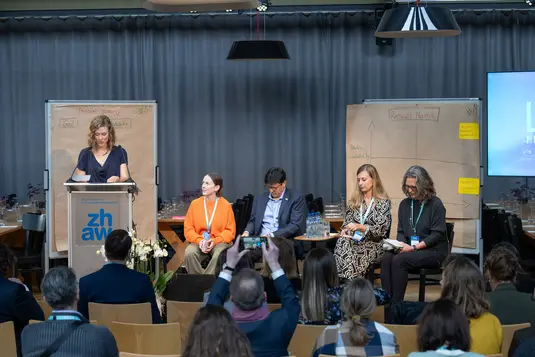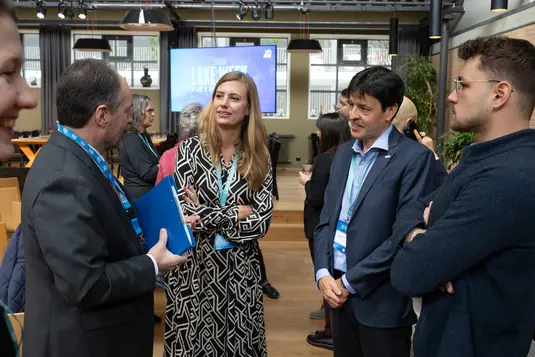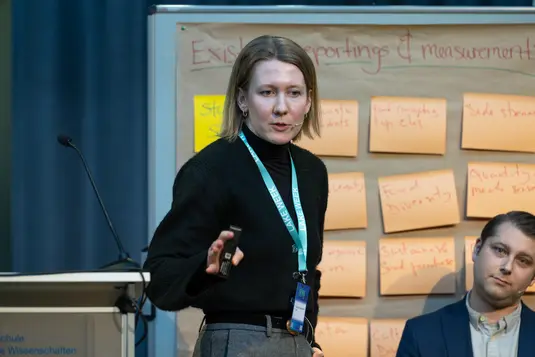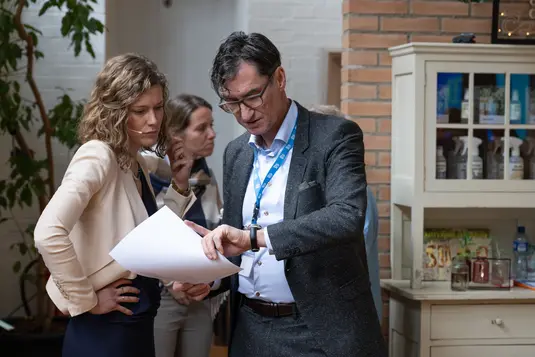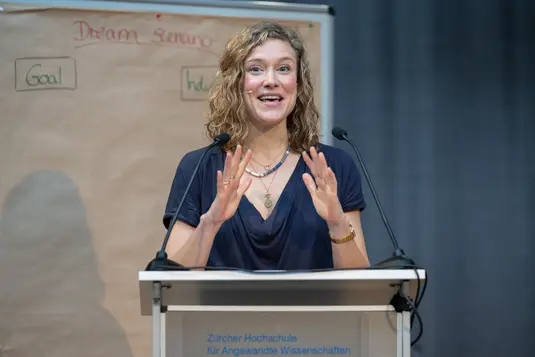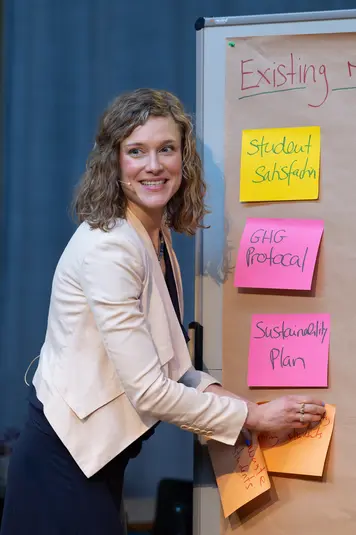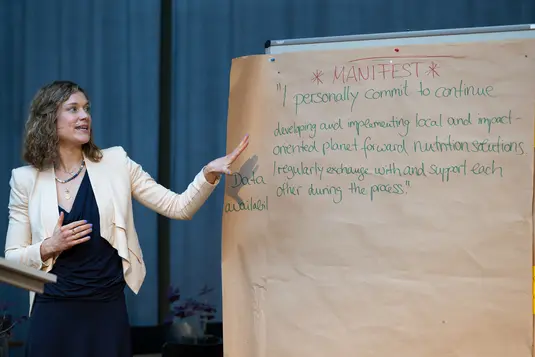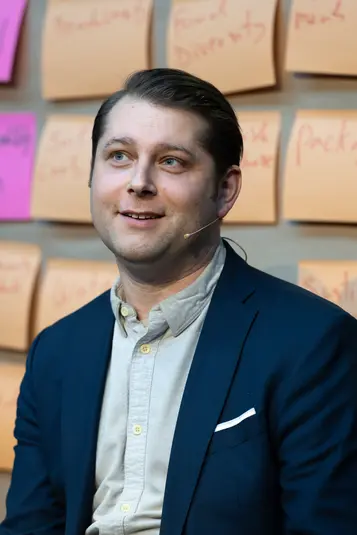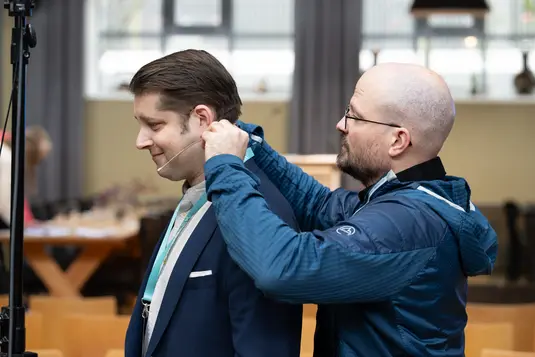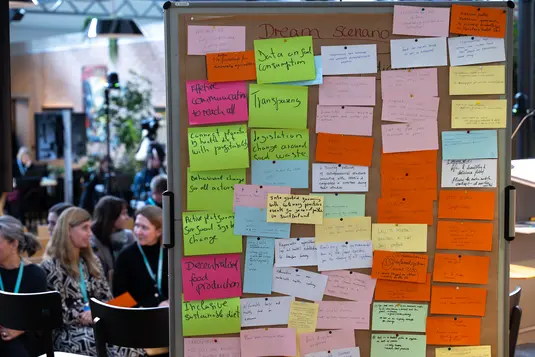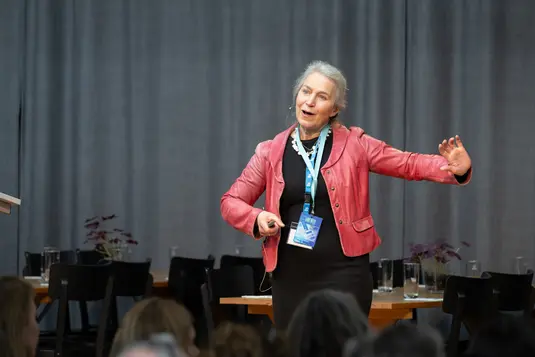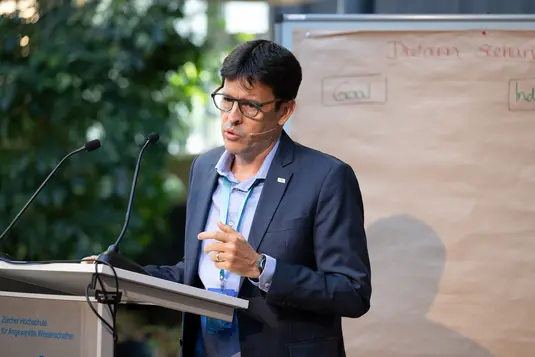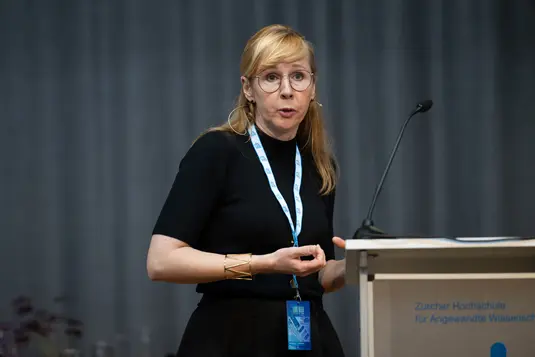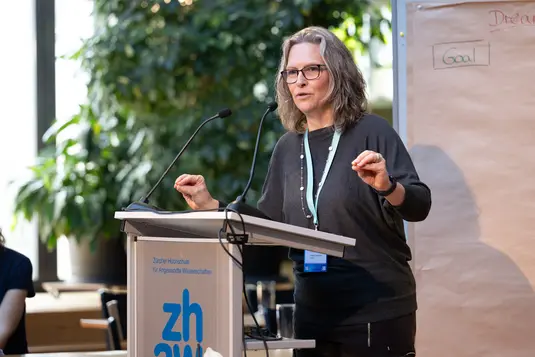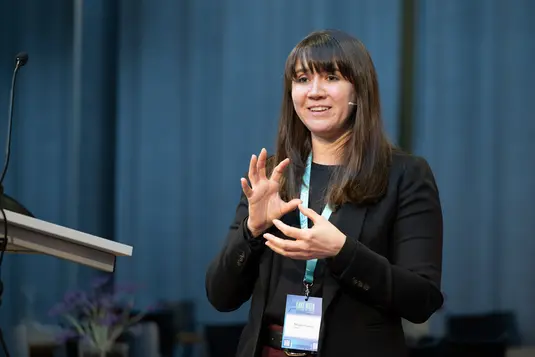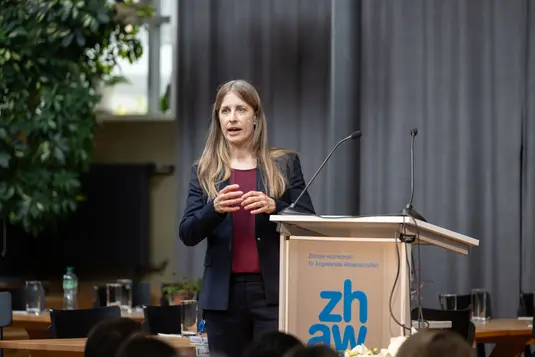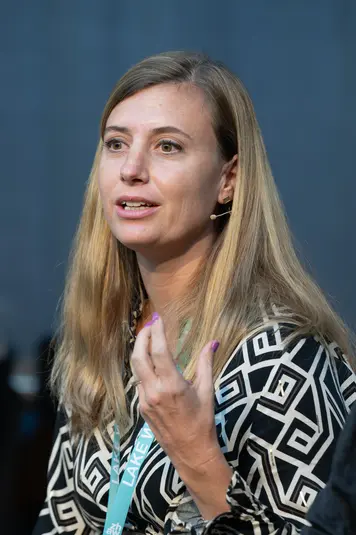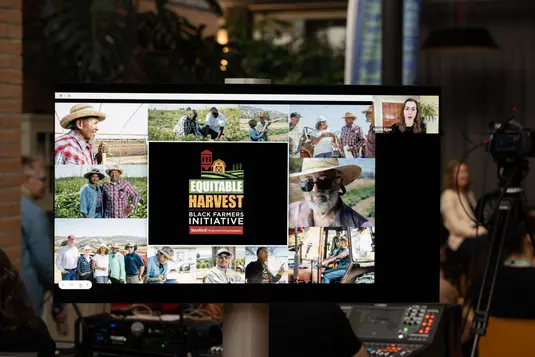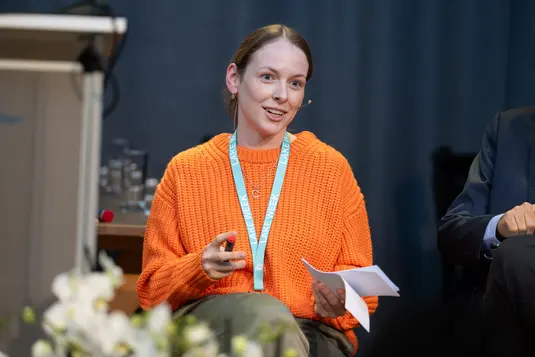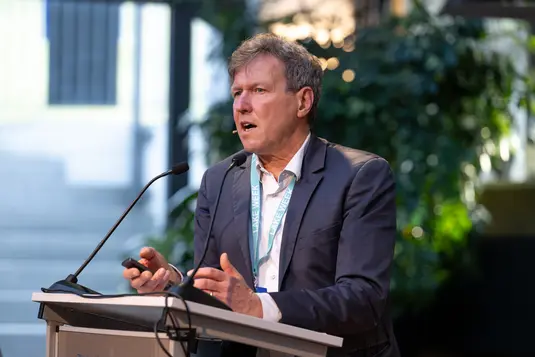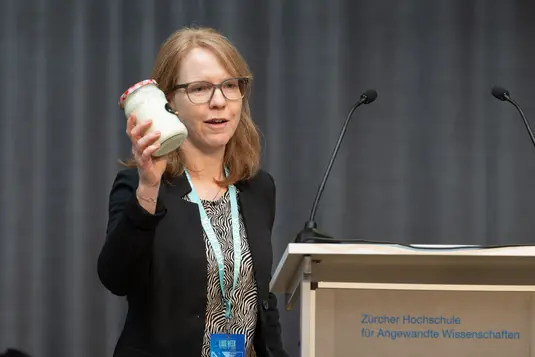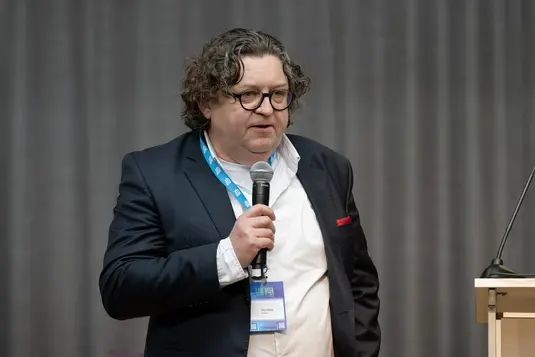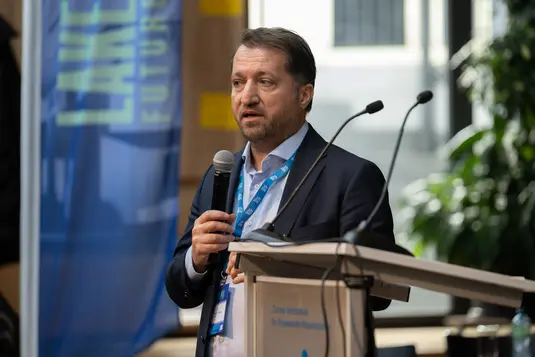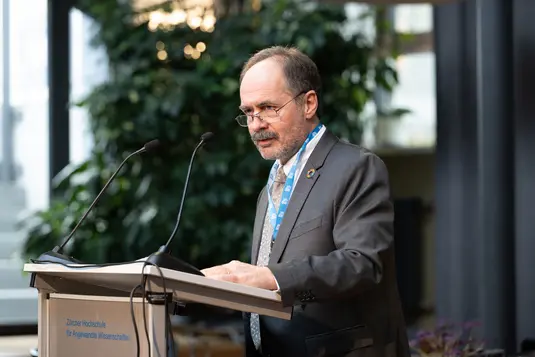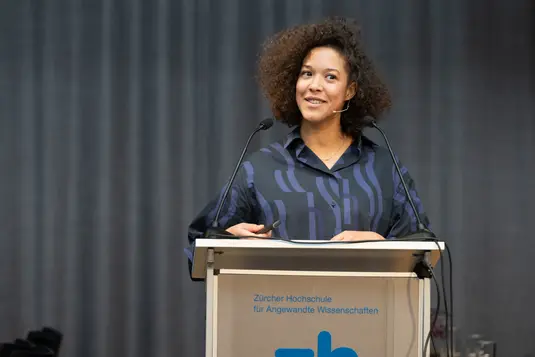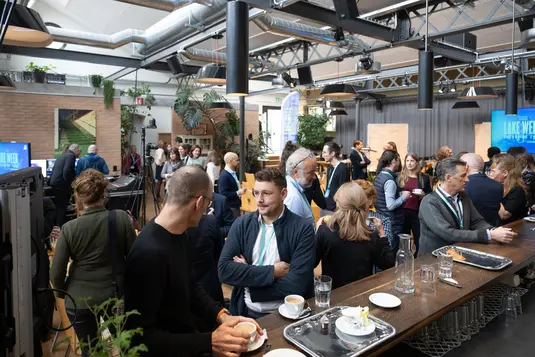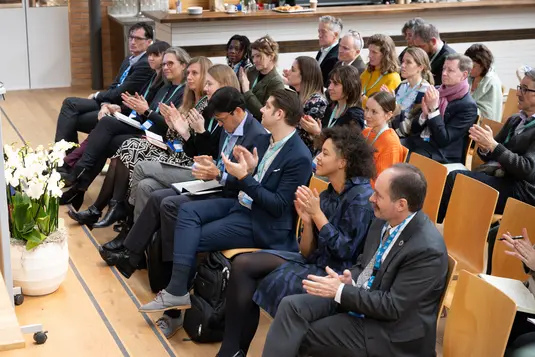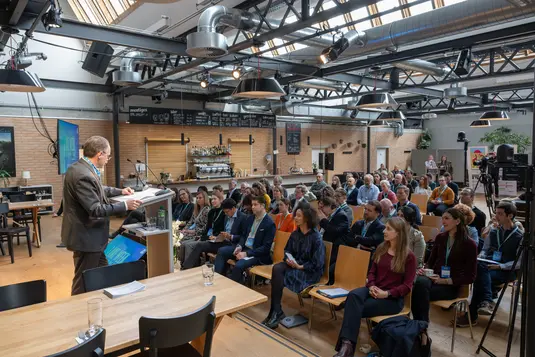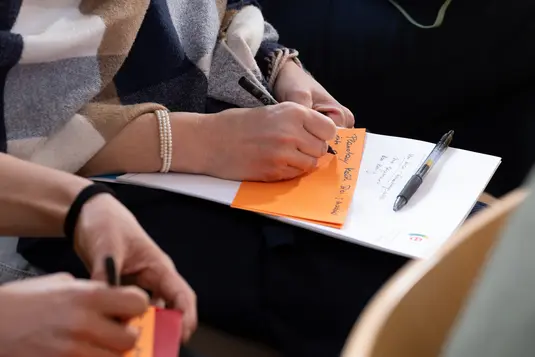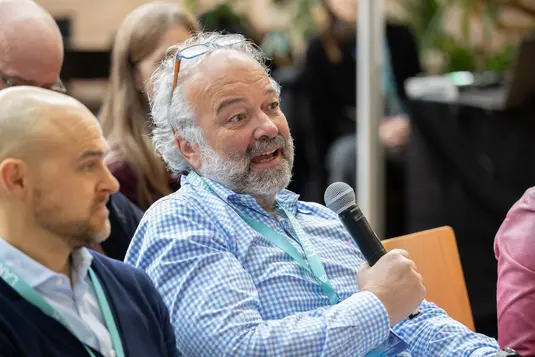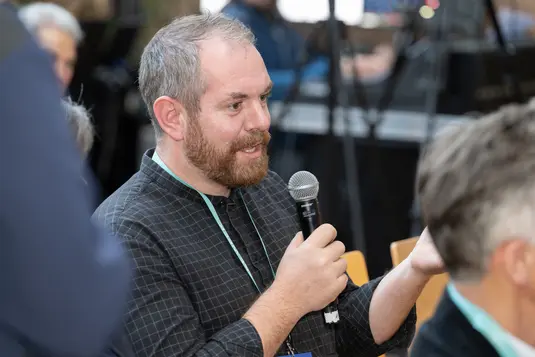International Day: Planetary Health Diet – turning global visions into local actions

The International Day Symposium will host prestigious international guests from the US (e.g., from Harvard and Stanford) and the Future Food Campus in Berlin, as well as inspiring speakers and experts from all over the world. Serving as the kick-off event for the ZHAW LAKE WEEK, the symposium will focus on planetary health diet solutions and bridging the gap between global visions and local actions. One of the key missions of the symposium is to showcase the latest best practices in planetary health diet solutions. By fostering discussion and collaboration, the symposium aims to address formidable global challenges such as the climate crisis, malnutrition, and biodiversity loss. Ultimately, the goal is to motivate meaningful transformations within our global food systems.
From academic excellence to state-of-the-art food technology, this day will bring international competencies, innovative ideas, and scientific insights together. It will foster valuable collaborations that will pave the way toward regenerative food solutions, benefitting both human wellbeing and the health of our planet.
Speakers
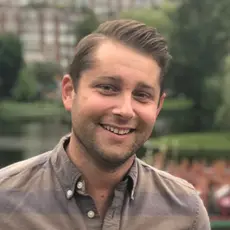
David Havelick graduated from UMass Amherst with a degree in Political Science and Sociology in 2005, and holds a master’s degree in Sustainability and Environmental Management from the Harvard Extension School (2014). He joined the Harvard University Office for Sustainability in June 2016 after 10 years of working at the Harvard T.H. Chan School of Public Health in the Department of Epidemiology.
In the Office for Sustainability, David helps to develop and advance the University-wide goals and objectives. He led the process to create Harvard’s newest Sustainability Action Plan, which was released in May 2023. David holds a board position with the Boston Vegetarian Society and is a member of the advisory coalition of Boston’s Good Food Purchasing Program.
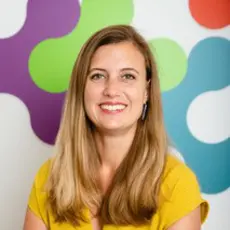
As the CEO of Swissnex in Brazil, Malin Borg manages offices in Rio de Janeiro and São Paulo. She began her journey at Swissnex in Brazil in 2013 and was instrumental in launching the newest addition to the Swissnex network. In 2017, Borg transitioned to Switzerland to work directly with the State Secretariat for Education, Research and Innovation, becoming Head of Unit of the Swissnex network; she was responsible for the overall strategy for all Swissnex locations and 20 Science Counselors worldwide. Borg holds a master’s degree in international Affairs from The Graduate Institute in Geneva and an undergraduate degree from the University of St Andrews, UK.
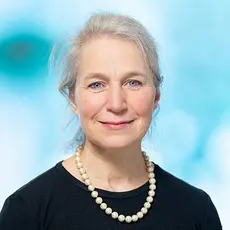
Christine Brombach is a lecturer at the Zurich University of Applied Sciences in Wädenswil, Switzerland (ZHAW). Her current research and teaching responsibilities are in the area of consumer research and nutritional behavior. She completed her studies in Oecotrophology in Giessen and USA (MSc.). After her PhD at the University of Giessen (Germany), she was project coordinator of the National Consumption Study II at the Max-Rubner-Institute in Karlsruhe (Germany) for four years.
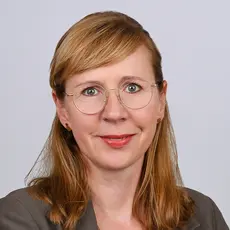
Irene Chetschik is Professor of Food Chemistry & Analysis and Head of the Food Chemistry Research Group at the Institute of Food and Beverage Innovation of the Zurich University of Applied Sciences in Wädenswil, Switzerland. She studied Food Chemistry at the Technical University of Munich, Germany and obtained her PhD in the Field of Aroma Research at the Technical University Munich & German Research Centre for Food Chemistry (now Leibniz-Institute for Food Systems Biology). After her PhD, Irene Chetschik worked as Flavour Research Scientist for two international companies in Switzerland before she joined the ZHAW, were she established 2018 the Food Chemistry Research Group.
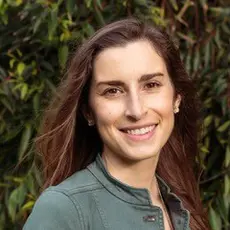
«Digital appearance»
Sophie Egan, MPH is the Director of the Stanford Food Institute and Sustainable Food Systems at R&DE Stanford Dining, Hospitality & Auxiliaries, where she is Co-Director of the Menus of Change University Research Collaborative. She is also the author of How to Be a Conscious Eater (Workman, 2020)—named one of Bon Appétit’s “Favorite New Books for Climate-Friendly Cooking and Life”—and the founder of Full Table Solutions, a consulting practice that’s a catalyst for food systems transformation. An internationally recognized leader at the intersection of food, health, and climate, Sophie is also a contributor to The New York Times Health section and Director of Strategy for Food for Climate League, Previously, Sophie served as the Director of Health and Sustainability Leadership/Editorial Director for The Culinary Institute of America’s Strategic Initiatives Group. Sophie’s writing has been featured in The Washington Post, TIME, Parents, The Wall Street Journal, Bon Appétit, WIRED, EatingWell, Edible San Francisco, FoodTank, and Sunset. She is a member of the Food System 6 Advisory Board, James Beard Foundation Sustainability Advisory Council, and the Food Tank Academic Working Group.

Since August 2020, René Estermann has served as the Director of the Department of Environmental and Health Protection (UGZ) for the City of Zurich. Estermann obtained the title of Dipl.-Ing. as an agricultural economist from the ETH Zurich in 1992. While still a student, he founded the company composto+, leading it as managing director until 2006. From 2006 to 2019, he was the Managing Director and CEO of the myclimate foundation, with numerous commitments in Germany and abroad. In 2019, Estermann took on a pivotal role at South Pole as the Director of Sustainability Services & Business Development. With a broad network spanning business, politics, and administration, Estermann brings a wealth of experience and connections to his roles.
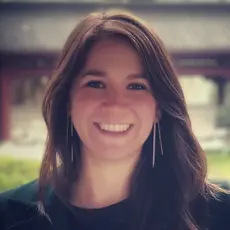
Megan Francis is the Director of Global Engagement for Rutgers School of Environmental and Biological Sciences. In this role, she collaborates across the university to promote partnership development, curriculum integration for study abroad, and support services for incoming students. Additionally, she works closely alongside faculty to integrate internationalization strategies into ongoing SEBS research.
She joined Rutgers in 2012 to support the school's global mission of access and scientific inquiry. Her research interests include educational access beyond the classroom such as culturally relevant meals on university colleges, supporting cross-cultural communication between students, and building stronger leadership pipelines through professional development.
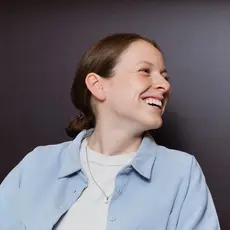
Sophia Antonia Graupner is a food technologist whose passion and pursuits are as varied as her personality. Graupner studied food technology (Bachelor) at the ZHAW in Wädenswil and is now co-founder of Hängry Foods GmbH, a sustainable food start-up. Through her sole proprietorship, S. Graupner FOWACO, Zurich, Graupner immerses herself in the areas of management and strategy as well as marketing and communication. In addition to her entrepreneurial ventures, she co-hosts the podcast "The Food Futurist," which explores the evolving world of nutrition.
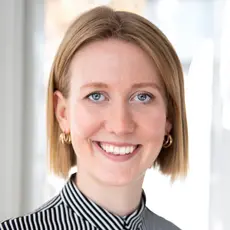
At the Food Campus Berlin Theresa Hingsammer is currently developing a community platform – the Food Campus Digital – to encourage interdisciplinary exchange within the food industry and to develop solutions for a planetary health food system efficiently. In doing so, she never ignores the symbiosis of tradition and future, which is for her the key success factor for the transformation of the food system. Her family background in Austria with organic farmers, fishermen, beekeepers, cooks and bakers helps her stay in constant contact with tradition.
After Theresa completed the Global Sales and Marketing (BA) and her pedagogics diploma, she gained further experience in various fields such as in strategic consulting, marketing, agile project management and change management driven by her great curiosity.
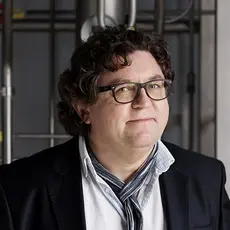
Tilo Hühn is FoodArchitect, inventor, developer and implementer of regenerative technological processes in companies. With his team at the Zurich University of Applied Sciences (ZHAW) in Wädenswil and in cooperation with partners from science and industry, they create, modify, expand and reproduce information pathways to explore functional solutions for the food world and implement the jointly obtained results. In doing so, they are on the path to creating the basis for the development of transformative and regenerative food processes. He is referred to behave as a "free radical" by his friends. He participates, responds, recharges, and disappears again to get involved elsewhere. Acting responsibly together, reflecting and making a difference are cornerstones in the professor's periodic table. He draws his activation energy from discourse with students. He is currently head of the Center for Food Composition and Process Design at ZHAW and involved in a radical ecosystem innovation, FoodCampus.Berlin. "I try to cultivate the unknown and love to dive into chaos with other people to find new compositions for products and possibilities for transformation in the form of regenerative processes. It's not about being innovative or not - it's about the how and the impact.“
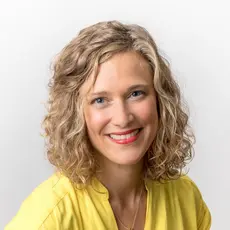
Denise Loga is regeneration expert with the thematic focus on future of food and a self-leadership mentor. In her book "Connect Yourself," she inspires people to create a more meaningful and happier life based on purpose and hosts corresponding workshops and retreats. Denise leads two modules with the ZHAW Master program “Preneurship for Regenerative Food Systems” and is a member of the board at foodward foundation, Zurich. She is also a member of the board at the foodward foundation in Zurich. Denise also co-founded two companies and is passionate about making individuals, companies and organizations future-fit. She previously worked for the UN, IIED and WWF and holds a Master (M.Sc.) in “Development Management“ from the London School of Economics and Political Sciences (LSE).
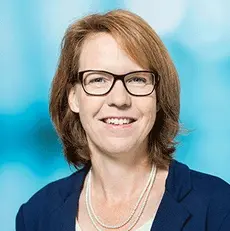
Prof. Dr. Susanne Miescher Schwenninger, head of the Food Biotechnology Research Group joint the Zurich University of Applied Sciences (ZHAW) in 2011 after her academic career at ETH. She dedicated her research to the development of tailored fermentation processes and functional microbial food cultures in a sustainable food production. Core topics are 1) the in-situ formation of bioactive compounds and degradation of undesired compounds by microorganisms aiming at improved food safety and quality, 2) the bio-valorization of agri-food side streams in a regenerative upcycling strategy, and 3) microbial biomass and metabolites production for the development of future food products. Over the years, the research group’s activities resulted in national and international collaborations with academia and industry.
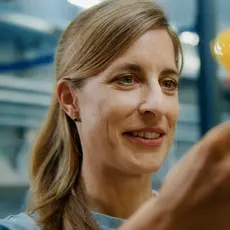
Prof. Dr. Nadina Müller dedicates her work as the head of the research group Food Technology (ZHAW-Institute for Food and Beverage Innovation, Wädenswil/Switzerland) to the development of application-oriented technologies for a more sustainable processing of food from raw material to end product. The focus therein lies on the relationship between process, structure and properties of food products coupled with the evaluation of the effect of the novel processing approaches on the ecologic footprint. Core topics are the complete utilization of raw materials through either the generation of less side streams or the up-cycling of these side streams. To tackle these complex challenges, the team works closely together with food processing companies and fosters inter-disciplinary research.

Sharon Nehrenheim is PREFS-student and teamlead institutional partnerships at Biovision Foundation with an M.A. in English Studies and Business Administration. She is passionate about language and generally how we perceive the world and to her, everything's about connections and relationships. Over the past 13 years she has gained extensive experience in marketing and communication and will continue to use her skills and motivation to transform our food systems towards more regeneration.
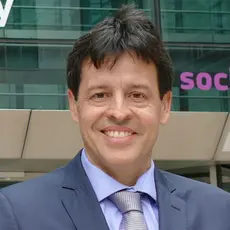
Gustavo Porpino works for the Brazilian Agricultural Research Corporation (Embrapa) since 2006. He holds a PhD in business administration (marketing) from FGV-EAESP and was a visiting scholar at Cornell University’s College of Agriculture, where he carried out research on food consumption behavior. He is currently a member of the research team at Embrapa Foods and Territories (Maceió, Brazil) and he has experience in leading projects related to food waste mitigation. Gustavo collaborates with initiatives in the areas of food security and circular economy for the Food and Agriculture Organization of the United Nations (FAO), Brazilian Ministry of Social Development, UN Environment and G-20. He is a co-founder of the Pact Against Hunger, a multi-sectoral movement that aims to combating hunger and reducing food waste in Brazil. In his spare time, he enjoys cooking new recipes with his wife, playing with his kids Sarah and Pedro, and saving leftovers.

As Senior Vice President of Partnerships, Kathy Pugh leads a team dedicated to developing long term partner relationships, delivering exceptional service and growth within her portfolio. Prior to becoming a part of 2U, Kathy was the founding edX executive who built the organization’s partnership and learner success strategies and operations as well as the content strategy and function. Prior to joining edX, Kathy held leadership positions at Core Security, Charles River Development and Advent Software where she was responsible for global account management and services, growth and customer success. When she is not at edX, Kathy enjoys time with her family, racquet sports and spending time outdoors. She holds a B.A. in economics from The College of the Holy Cross.
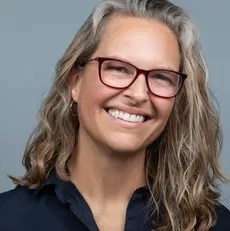
Katie Stebbins is the Executive Director of the Food & Nutrition Innovation Institute at Tufts University and was previously the inaugural Secretary for Technology, Innovation and Entrepreneurship in Massachusetts, where she led state investment efforts in cybersecurity, health-tech, robotics, and advanced manufacturing. She is formally trained as an environmental/urban planner and worked in declining post-industrial cities for nearly twenty years addressing the challenges of economic disinvestment and advancing the opportunities for systems change at the local municipal and state level. In each of these roles, Katie has provided expertise in the relationship between workforce development and population health and the systems required to meet the needs of a rapidly evolving digital economy. Katie has launched three of her own companies, is an Innovator in Residence at MIT Sloan School, and earned a master’s in regional planning from the University of Massachusetts at Amherst.
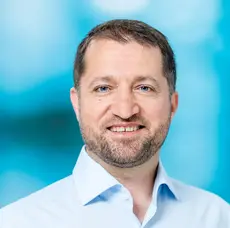
Selçuk Yildirim is Professor and Head of Center for Food Processing and Packaging at the Institute of Food and Beverage Innovation, Zurich University of Applied Sciences, Switzerland (ZHAW). He received BSc. Degree in Food Engineering and MSc. Degree in Process Engineering. He did his PhD at ETH in the field of Biotechnology and continued doing research as Post-Doc and Group Leader at ETH-Zurich. He worked afterwards as a researcher at the research and development center of Alcan Packaging before joining the ZHAW in 2010 as professor and researcher. Selcuk Yildirim is a member of the board of “Swiss Food Research” and he is founder and leading research partner of the Packaging Innovation Network, Switzerland. He also serves for the board of IAPRI (International Association of Packaging Research Institutes). In close collaboration with the industry, his group aims to develop of innovative and sustainable packaging technologies for optimal food quality and food safety. He is author of numerous book chapters, publications and patents.
Download presentations
Impressions
Images may be used with ©zhaw lake week / Photo Frank Brüderli
Videos
